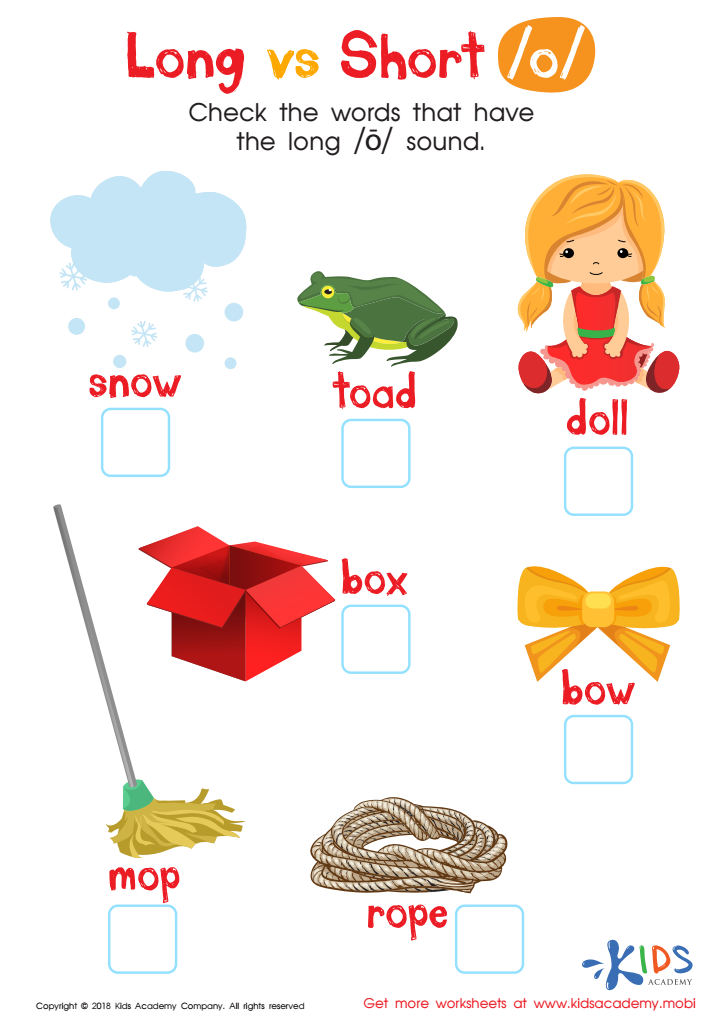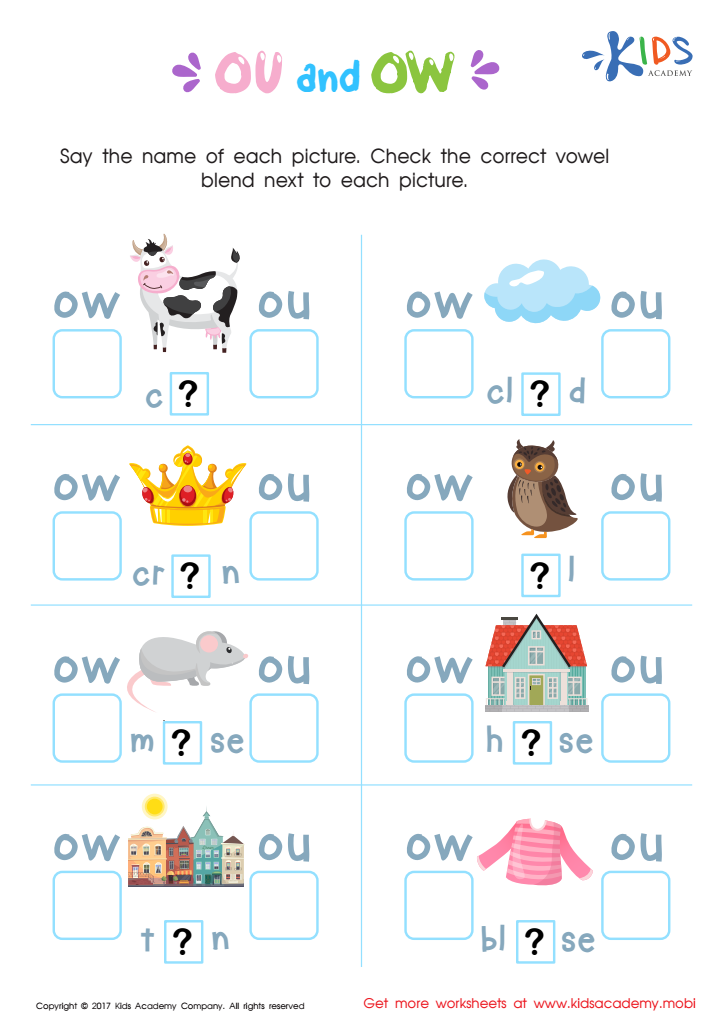Sound differentiation Vowels Worksheets for Ages 4-9
3 filtered results
-
From - To
Enhance your child’s phonemic awareness with our engaging Sound Differentiation Vowels Worksheets, designed for children ages 4-9! These interactive activities help young learners distinguish between different vowel sounds, a critical component in developing strong reading and pronunciation skills. Our worksheets feature colorful illustrations, fun exercises, and varied formats to keep children motivated and excited about learning. Perfect for classroom settings or home practice, these resources cater to various learning styles and abilities. Give your child the confidence to master vowels and boost their literacy journey today! Explore our collection and watch their reading skills flourish.


Long vs Short O Reading Worksheet


Long and Short Vowel Sentences: Assessment Worksheet


OU and OW Words Worksheet
Sound differentiation of vowels is crucial for children aged 4-9 as it lays the foundation for effective reading and communication skills. At this stage, children are developing phonemic awareness, which involves recognizing and manipulating the individual sounds in words. Understanding vowel sounds is particularly important because vowels are the building blocks of most words; mispronouncing or misidentifying them can lead to confusion and decoding difficulties.
For parents and teachers, fostering sound differentiation in vowels enhances children's phonemic awareness, which is linked to better reading proficiency. When children can identify and differentiate between short and long vowel sounds, they become more adept at pronouncing words accurately, spelling correctly, and comprehending what they read. Additionally, strong vowel discrimination supports vocabulary development, helping children expand their language skills.
Moreover, engaging in fun phonics activities at home or in the classroom can motivate young learners and make the process enjoyable. By caring about sound differentiation, parents and teachers are equipping children with essential literacy skills that will positively impact their academic success and overall confidence in communicating effectively throughout their lives. Early intervention and targeted strategies can foster a love for learning and ensure more children become proficient readers.

 Assign to My Students
Assign to My Students

















